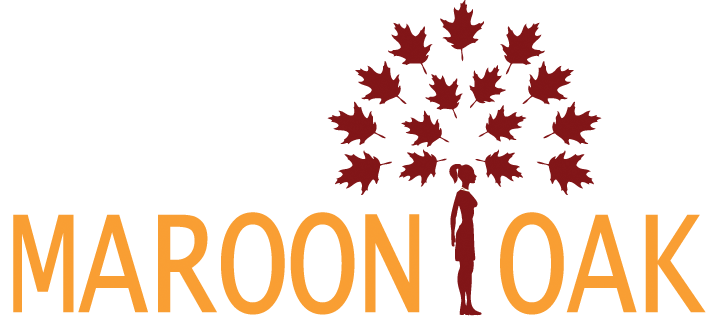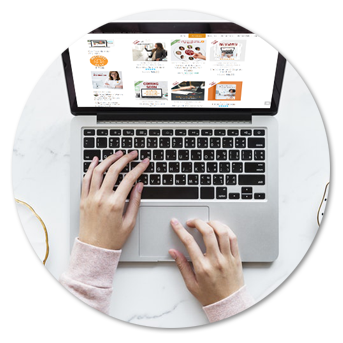Are you considering starting an eCommerce business? Go you!
An eCommerce business is one where you list, market and sell your product or service via the web and mobile. You can choose from a range of options like single or multiple products, sell goods on a multi-vendor marketplace, and even build your own!
When done right, it’s a rollercoaster that’s well worth the ride. But before you commence that eCommerce journey, you’ll want to make sure you’re doing it right.
Is having a great product enough to create a successful eCommerce business?
It’s a great starting point. But like any other business, you need to know your audience, assess the market and competition as well as the tech & marketing infrastructure.
Here are 6 questions to ask yourself before starting an eCommerce business
(And tips to get you moving in the right direction)
1. Do people want my item?
Before you embark on an e-commerce adventure, you need to define your product’s reason for being. Do people really want or need this item? Are you solving a real problem that already exists, whether your potential consumers realize it or not?
Taking the time to think this through is key. Be honest with yourself, folks. The market is saturated with innovative products that people need. If you’ve got one to add to the mix, great! But if not, it’ll be tricky to launch a successful e-commerce site with a long-standing appeal. The fact of the matter is this: people don’t spend their hard-earned money on things they don’t need or want.
There are 2 ways to assess interest in your product – ask your target audience and search online.
a. Understand the preferences of your ideal customer – you can do user interviews, opt for free and paid surveys. Niche Facebook groups are a great way to get opinions and answers fast and free.
b. Online searching gives you data from a large pool of users. Take a moment to think about what people would search on Google when looking for your product. Google Trends and Google Ads Keyword Planner are both free platforms where you can analyze keywords and searchability. Most importantly, you can figure out if people are actually searching for your product and whether its popularity is declining or on the rise.
Most online experiences begin with a search engine, so you’ll get a good chunk of traffic from Google alone. That’s exactly why you need to become privy to keyword search volumes and patterns. Do your research to find out if your e-commerce product stands a chance!
2. What’s the market share of my category & is it trending?
Over the last few years, many industries and product categories have been turned upside down, creating stale markets and dried-up opportunities. Make sure the product you’re selling is in a growing market. Your online niche business has the potential to be super successful, but only if you find the right one.
As a shoe business gal, I wanted to create my own proprietary brand. I knew that the world needed another shoe line like they needed a hole in the head (that is to say, not at all). Market saturation of women’s shoes left many brands struggling to compete. But with a growing market in mission-based brands and fashionable women’s comfort shoes, I unearthed potential. As a result, I created a stylish, comfortable shoe with a lower carbon footprint.
The moral of the story?
Build an eCommerce business with the wind at your back. You’ll thank yourself later.
As for how I figured all of this out, I searched online and stayed patient. The NPD group measures how consumers shop across all channels to understand shifting tastes and trends. It’s a pricey service that eclipses the small businesses budget, but I kept my eyes peeled for free reports.
NPD category analysts release free reports and do podcasts from time to time; I listened to everything they said about my category and continue to do so. Covering 20 retail industries, it’s a worthy endeavor. If you’re not planning on joining the retail ranks, you’ll probably find a similar resource in your field.
Ask questions. Connect, Collaborate or Hire for business!
3. What’s the competitive landscape?
Be realistic about the prosperity of selling your item online. If your item is all over Amazon at every price point, your chances of selling a similar item on your website are slim.
Amazon offers the best prices, fast and free shipping and the most liberal return policy—in short, they’ve got it made. For a customer to buy from your website, you’ll have to offer a product or perks that Amazon doesn’t sell.
For buyers to come, the price must be right. Customers are savvier than you think. Your site might scream #inspo or you may be a lovely, hard-working person, but that won’t prompt someone to overpay. You need to offer value.
When making a purchasing decision, the customer will look at quality, the story behind the brand, a product’s function, and price. Do a detailed market analysis and make sure you’re offering a competitively priced item with all these factors in mind.
4. Do I have enough margin in the item to make money?
Over time, I’ve figured out a pretty solid recipe. With the right product, plenty of hustle, education, and patience, you can snag those online sales and grow your eCommerce business.
To do so, however, you need enough margin in your product so you can turn a profit. Shipping, web development, operations, returns, and customer acquisition: these are all costs that you need to take into consideration from the get-go.
Set up a detailed financial plan that addresses all of these factors. If you don’t know a certain cost, don’t guess. Instead, reach out to your professional network, friends, and family. Ask for help. Do the work. While building my financial plan, I tapped deep into the network I had built up over the course of my career, and it paid off.
Also read: Build a thriving business with Networking done right
5. Do I have the tech?
Today, fulfillment for online commerce isn’t hard and nor does it cost a whole lot, if you know what to do. Platforms like Woocommerce for WordPress, Shopify or Magento are great for creating a fairly sophisticated interface and secure transaction options. So figure out whether you will enable the technology end of the commerce or hire someone to do it. But keep in mind that customer experience is key. So building it right from the get-go as well as a strong brand outlook is important for your success.
Check out these top choices for online marketplaces and platforms.
6. Do I have a tribe?
Do you have email subscribers or a large social following? If not, you’ll need to build your network, relying on friends and family to buy your product in the meantime.
Biz Besties, Business Partners, Peer mentors or Collaborators
Find your tribe on Maroon Oak
 Sign up or Connect with
Sign up or Connect with ![]() (It’s FREE!)
(It’s FREE!)
Driving qualified traffic to your site and converting them into buyers takes two things: good ol’ time and money. Tackle Google, Facebook and Instagram ads. Support that traffic with remarketing campaigns. Delve into email marketing, influencer marketing, and content marketing to grow your organic leads for free. These things are an investment, which is why you need to make sure your financial plan takes a solid marketing strategy into consideration.
Is eCommerce for You? How can you be successful at selling online?
Answering these 6 questions isn’t going to be a quickie. Before starting your eCommerce business, you’ll need to do the research, figuring out if your innovative product has potential on the wayward web.
When you tailor your products to the wants and needs of consumers, build a palpable plan and stay smart, one thing’s for certain.
You’ve got this.
Mary Sue Papale is the co-founder of Ashbury Skies and the BENDY. The BENDY is a modern, comfortable shoe with a lower carbon footprint, handcrafted in California. She is a mom to a college freshman named Nicholas. Mary Sue lives in San Francisco with her husband and her senior pug, Biscuit.












Thanks a lot for this I’m starting a dropshipping store and Is veru overwhelming. This helps a lot.
Thanks for sharing. Am currently building up my ‘shop’ with journals, ebooks, etc. Great info.
Great read! learned a lot from this post.